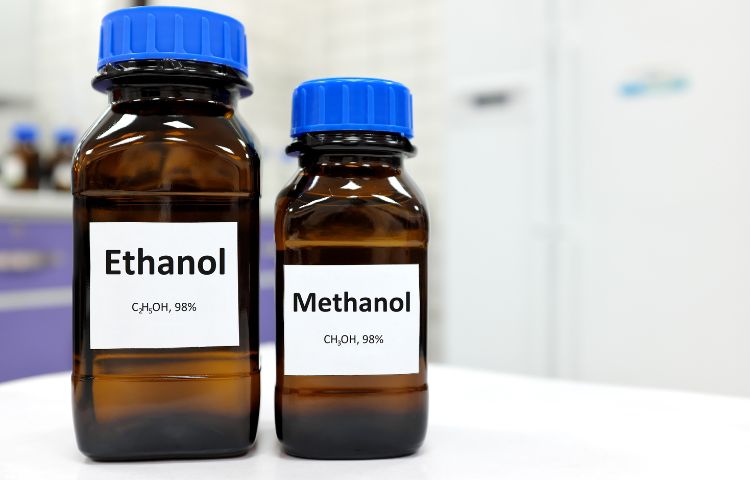Methanol, often dubbed the “simplest alcohol,” is a colorless, volatile liquid with an extraordinary range of applications that make it a cornerstone of modern industry and green innovation. Its unique chemical properties and versatility have transformed methanol from a basic solvent to a critical feedstock in producing fuels, chemicals, and emerging energy solutions. As the world navigates the transition towards sustainability, methanol’s role is becoming more vital, offering pathways to cleaner energy, advanced manufacturing, and environmental benefits.
Expert Market Research Insight: Guiding Innovation and Sustainability
Expert market research plays a crucial role in unlocking methanol’s full potential by analyzing technological advancements, regulatory environments, and consumer trends. Through comprehensive studies, research identifies emerging opportunities such as the rise of green methanol, advancements in carbon capture integration, and expanding applications in renewable energy sectors.
These insights empower manufacturers, policymakers, and investors to make informed decisions that foster innovation and sustainability. By highlighting the evolving landscape of methanol production and utilization, expert research acts as a catalyst, encouraging collaboration and strategic development to meet global environmental and economic challenges.
Methanol: The Backbone of Industrial Chemistry
Methanol (CH3OH) is a vital building block in chemical synthesis, serving as a precursor to products like formaldehyde, acetic acid, plastics, adhesives, and solvents. These derivatives are essential components in everyday goods such as furniture, automotive parts, paints, and textiles. Methanol’s versatility makes it indispensable across industries.
Additionally, methanol’s high octane rating and clean-burning properties position it as a promising alternative fuel. It can power internal combustion engines directly or be converted into synthetic gasoline and biodiesel. Its ability to reduce harmful emissions compared to traditional fossil fuels highlights methanol’s growing role in advancing cleaner transportation and reducing carbon footprints.
Unlocking Sustainable Energy Solutions
One of methanol’s most exciting attributes is its role in sustainable energy development. As nations strive to curb greenhouse gas emissions, methanol offers a viable, cleaner energy carrier. It can be synthesized from renewable sources like biomass, carbon dioxide, or even captured waste gases, creating “green methanol” that helps close the carbon cycle.
Green methanol can substitute conventional fuels in transportation and shipping, sectors notoriously hard to decarbonize. Additionally, methanol’s liquid state at ambient conditions simplifies storage and transport compared to hydrogen, making it an attractive hydrogen carrier in the emerging hydrogen economy. These qualities fuel optimism about methanol’s capacity to support global energy transition goals.
Regional Focus: Methanol in Europe
Europe leads methanol innovation and green energy adoption, driven by strong environmental policies and ambitious climate goals. The region harnesses renewable electricity and biomass to produce carbon-neutral green methanol. In response to strict sulfur emission rules, Europe’s maritime sector increasingly adopts methanol as a cleaner marine fuel, with ports and shipping companies building bunkering infrastructure.
Additionally, European chemical industries pioneer methanol-to-olefins and methanol-to-aromatics technologies, cutting dependence on crude oil derivatives and advancing circular economy models that promote sustainability and resource efficiency.
The Science Behind Methanol’s Versatility
Methanol’s molecular simplicity belies its chemical versatility. Its single carbon atom bonded to a hydroxyl group allows it to react readily in a variety of processes. It dissolves many organic compounds, making it an excellent solvent in laboratories and industries. Its ability to undergo catalytic transformations into valuable chemicals enables efficient production routes that reduce energy consumption and waste generation.
Furthermore, methanol can participate in reforming reactions to generate hydrogen, facilitating its use in fuel cells and clean energy systems. This adaptability makes methanol a strategic molecule, bridging traditional chemical manufacturing with futuristic energy technologies.
Safety and Environmental Considerations
While methanol offers many benefits, its handling requires careful attention. It is toxic if ingested and can be absorbed through the skin, necessitating stringent safety protocols in manufacturing and transportation. Proper ventilation, protective equipment, and spill management are critical to ensuring worker safety and environmental protection.
On the environmental front, methanol combustion produces fewer pollutants compared to conventional hydrocarbons, significantly reducing sulfur oxides, particulate matter, and nitrogen oxides emissions. However, it still emits carbon dioxide, emphasizing the importance of green methanol development to achieve net-zero goals.
Methanol’s Role in Circular Economy and Waste Utilization
Methanol production from waste streams exemplifies circular economy principles. Technologies converting municipal solid waste, agricultural residues, and industrial off-gases into methanol not only reduce landfill burdens but also generate valuable chemicals and fuels. This approach minimizes environmental impact and supports resource efficiency, making methanol a bridge between waste management and sustainable production.
The circular nature of methanol aligns with global efforts to decouple economic growth from resource depletion. By transforming carbon-rich waste into a versatile feedstock, methanol supports the development of regenerative industrial ecosystems.



